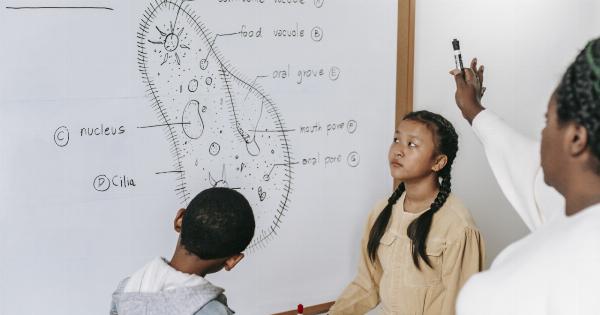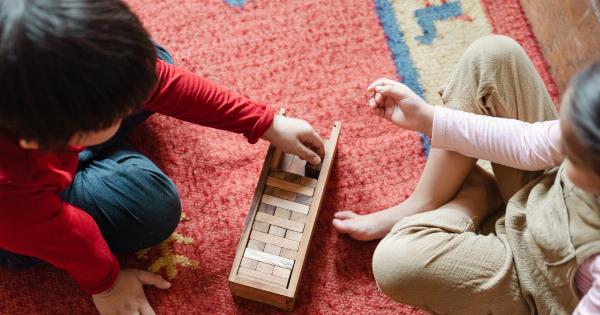Every child deserves to grow up in an environment where they are surrounded by love, care, and support. Providing children with the necessary support is essential for their overall well-being and growth.
When children receive adequate support, they are more likely to thrive, develop positive self-esteem, and succeed in various areas of their lives. It is our responsibility as adults to ensure that children receive the support they deserve in their education, emotional development, and overall growth.
The Importance of Education Support
Educational support plays a crucial role in a child’s development and future success. From the early years of preschool to higher education, children need guidance and assistance to excel academically.
Supportive measures in education involve creating a conducive learning environment, offering personalized attention, and providing necessary resources and tools.
An encouraging and supportive learning environment fosters a positive attitude towards education. When children feel supported, they are more likely to engage actively in the learning process, show enthusiasm, and perform better academically.
Teachers, parents, and caregivers can create such an environment by showing appreciation for children’s efforts, offering constructive feedback, and celebrating their achievements.
Personalized attention is another crucial aspect of educational support. Every child has unique learning needs and strengths. By recognizing and catering to these individual needs, educators can help children reach their full potential.
This could involve providing extra help to struggling students, offering advanced learning opportunities to gifted children, or providing additional resources to those with specific learning disabilities.
Moreover, ensuring that children have access to necessary resources and tools is vital for their educational success. This includes books, educational materials, technology, and adequate facilities.
When children have access to these resources, they can explore their interests, expand their knowledge, and become more independent learners.
Supporting Emotional Development
Emotional support is equally crucial for children’s overall development and well-being. Emotional development encompasses building healthy relationships, managing emotions, and developing resilience.
By offering children the support they need in this aspect, we can help them navigate through life’s challenges with confidence and emotional stability.
One key way to support children’s emotional development is by ensuring they have a safe and nurturing environment. Children need to feel secure and loved for their emotional well-being.
This involves creating a loving and supportive home environment, establishing open lines of communication, and fostering strong bonds with caregivers and family members.
Additionally, teaching children about emotions and helping them develop emotional intelligence is crucial. Emotional intelligence refers to the ability to understand and manage one’s own emotions and empathize with others.
By teaching children about different emotions, encouraging them to express their feelings, and teaching them appropriate coping mechanisms, we can support their emotional growth and development.
Providing children with opportunities to build social connections is also vital for their emotional well-being.
Engaging in social activities, friendships, and group projects allows children to develop important social skills, such as empathy, communication, and teamwork. These social interactions contribute to their emotional development, and support in this aspect can be facilitated through extracurricular activities, community involvement, and encouraging participation in group settings.
Overall Growth and Development
Supporting children’s overall growth encompasses various aspects, including physical, cognitive, and social development.
It involves providing them with opportunities to explore their interests, learn new skills, and develop a strong sense of self.
Physical development can be supported through regular exercise, healthy eating habits, and ensuring access to adequate healthcare.
Encouraging children to engage in physical activities, sports, and outdoor play not only contributes to their overall health but also helps develop gross motor skills, coordination, and body awareness.
Cognitive development, on the other hand, involves stimulating children’s thinking and problem-solving skills.
This can be achieved through providing challenging and age-appropriate activities, encouraging curiosity and exploration, and offering opportunities for creativity. Stimulating cognitive development fosters a love of learning, critical thinking abilities, and enhances overall intellectual growth.
Support for overall growth and development also extends to helping children develop a strong sense of self and their unique identity. This involves encouraging self-expression, celebrating individuality, and fostering a positive self-image.
By recognizing and supporting children’s strengths, passions, and interests, we can help them develop a strong sense of self-worth and confidence.
The Role of Communities and Society
Offering children the support they deserve is not solely the responsibility of parents or caregivers. Communities and society as a whole play a crucial role in ensuring that children receive the support they need to thrive.
Communities can support children through various avenues such as schools, community centers, youth programs, and support networks. These platforms provide resources, guidance, and opportunities for children to grow and develop.
By investing in quality education, providing safe and accessible recreational spaces, and promoting inclusivity, communities can create an environment conducive to children’s well-being and growth.
Moreover, society must prioritize the well-being of children at a systemic level. Policies and initiatives that promote child welfare, access to education, healthcare, and resources are essential.
By advocating for children’s rights and investing in their future, society can ensure that every child receives the support they deserve.
Conclusion
Offering children the support they deserve is paramount for their overall well-being, growth, and success. Whether it is through educational support, emotional development, or overall growth, children thrive when surrounded by love, care, and guidance.
It is our collective responsibility as adults, communities, and society to prioritize the needs of children and ensure they have the necessary support to flourish. By investing in their education, emotional development, and overall growth, we equip children with the tools they need to become confident, resilient, and successful individuals.






























